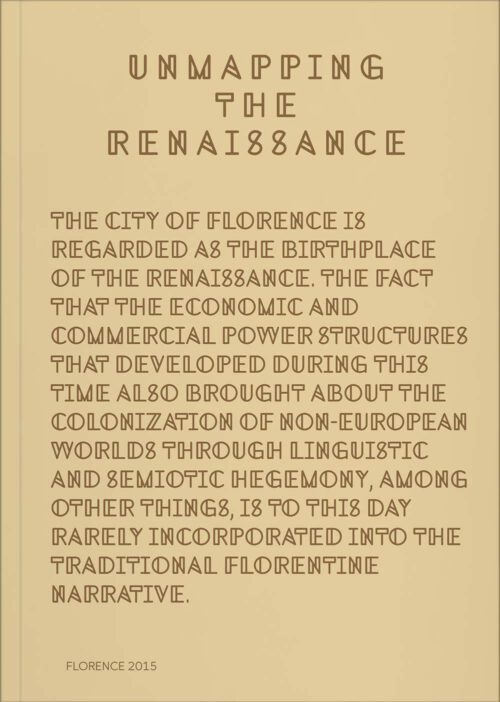The city of Florence is regarded as the birthplace of the Renaissance. The fact that the economic and commercial power structures that developed during the Renaissance also impelled the colonization of non-European worlds – among other things through linguistic and semiotic hegemony – is to this day rarely incorporated into this Florentine narrative. In the tourism industry and in the sciences, eurocentric categories are each in their own way persistent, even – or especially – in times of rapidly progressing globalization: even as looking outward may become more natural, it often still turns into another confirmation of the accepted master narrative.
In recent years, though, we have also seen a growing awareness of the categories, and of the perceptual processes associated with it, develop in the context of a comprehensive transcultural turn. Post-colonial theoretical approaches, for example, question the role of the Latin alphabet, of printing, of language or of particular social ideals on whose flip side processes of dispossession, canonization and hierarchization of culture, memory and space unfolded – and can continue to unfold in the afterlife of the Renaissance narrative.
In this sense the symposium „Unmapping the Renaissance“ follows critical resurveys of the mental map of a canonical and canonizing understanding of culture and period-concept: in a dialog between science and art, whose performative practices are intended to decidedly transcend established academic formats, the event considers the connections between hegemonic sign systems, imagination and (de-)colonial practices. The publication accompanies the symposium.
HOME

